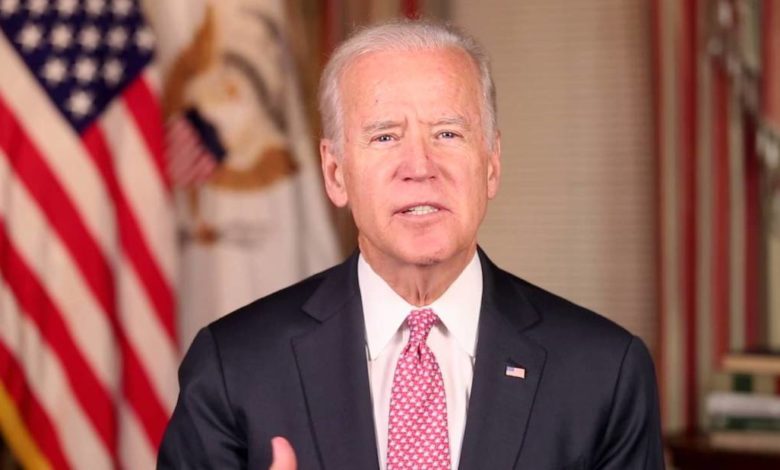Biden’s ambitious GHG cuts will target shipping

President Joe Biden on Thursday officially announced the new target for the US to achieve a reduction of up to 52% from the 2005 level of greenhouse gases (GHG) by 2030. This target is consistent with his goal of achieving net-zero GHG emissions by no later than 2050 and of limiting global warming to 1.5 degrees Celsius. The 2030 target far surpasses President Obama’s pledge in 2015, as part of the Paris Climate Agreement, to reduce GHG emissions by 26% to 28% from the 2005 level by 2025.
Biden’s announcement was made during his presentation opening the Leaders Summit on Climate, a two-day virtual event that brought together the leaders of 40 countries, including China, Russia, India, Brazil, the EU and the UK, to emphasise the urgency and the economic benefits of stronger climate action. As well as countries that are demonstrating climate leadership, Biden invited countries to the summit that are especially vulnerable to climate impacts.
Along with the US, other countries pledged reductions: the UK 78% (by 2035), Japan 46%, the EU 40%, Canada up to 45%.
Chinese president Xi Jinping said, “To protect the environment is to protect productivity, and to boost the environment is to boost productivity. It’s as simple as that.” He confirmed an earlier vow to be carbon neutral by 2060.
Prime minister Narendra Modi, meanwhile, said India will install 450 GW of renewable energy by 2030.
The Biden administration also said the US will double climate funding help for less wealthy countries by 2024.
Avoiding the costly disasters and conflicts caused by human-activity climate change would more than offset that planned spending, Biden said.
A fact sheet issued by the White House set out the US goal to reach 100% carbon pollution-free electricity by 2035, which it expects the country to achieve in part from plants either retrofitted with carbon-capture technology or powered by nuclear energy. China, too, plans to increase its electricity generation from low-carbon sources.
The White House fact sheet also discussed the carbon pollution created by the transportation sector, noting that the government will fund or promote R&D projects focused on renewable fuels and new technologies.
Biden made another big shipping announcement as part of the US’s Nationally Determined Contribution (NDC). The NDC itself states that: “While the emissions pathways analyzed focus on domestic emissions reduction, the United States is also exploring ways to support decarbonization of international maritime and aviation energy use through domestic action as well as through the International Maritime Organization (IMO) and International Civil Aviation Organization (ICAO).”
On Tuesday, Biden’s climate envoy, John Kerry announced the US would be pushing for the IMO to ensure shipping is a zero emissions industry by 2050, far exceeding current IMO targets that call for emissions to be slashed by at least 50% compared to 2008 levels.

Despite all the rhetoric there was no convincing evidence of the impact of rising temperatures. The climate has been hotter and colder on a cyclic basis before. This never gets addressed or commented on. The CC community dread the events they are forecasting don’t happen. It is not so long ago there were forecasts of the climate getting colder. There seems to be a willingness to thrown national economies to be sacrificed on the altar of climate change with no counter views allowed. Some forensic analysis of the claimed impact of global warming seems to be in order on an impartial, objective and independent (ie not peer reviewed by CC proponents) basis.
Are you on the same planet as the rest of us Phil Mortimer? Here in the Pacific we have already whole communities who are relocating due to the impacts of climate change – I assume you live in the over-developed world.
He clearly is not on the same planet, Alison, and he has stopped reading newspapers, watching television or using the Internet. He has stopped his eyes and ears to double digit temperatures in Siberia, to shrivelling glaciers in Greenland, to nation sized chunks breaking off ice shelves in Antarctica, to starving polar bears, to desertification in the Sahel and to the disasters facing island nations in the Pacific.